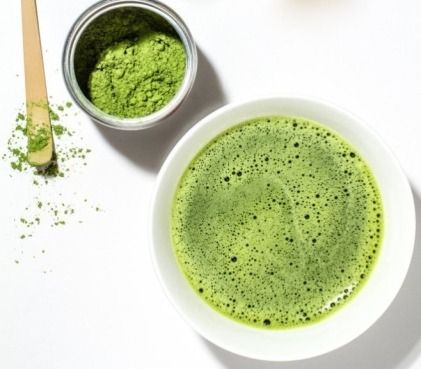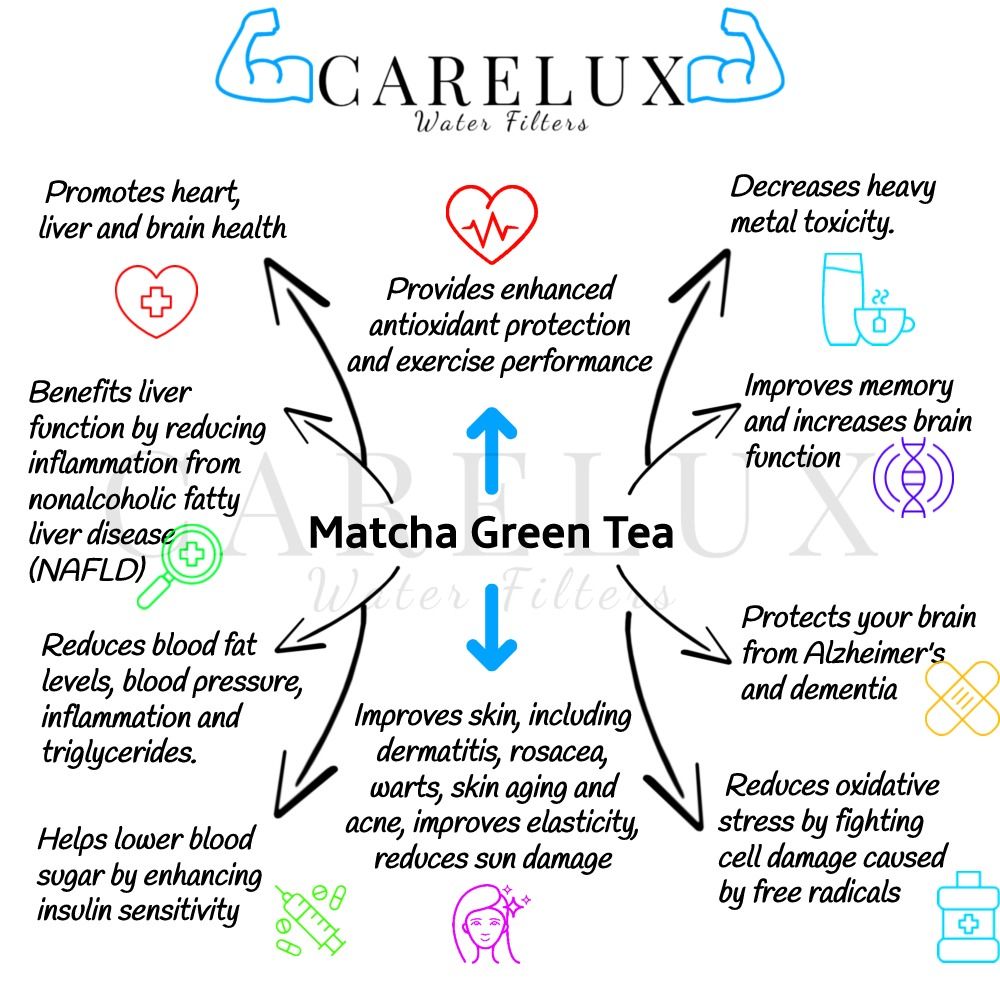Matcha
What are the benefits of Matcha?
The health benefits of matcha are many. The big ones include increased energy (without crashing), enhanced mental focus and a sense of calm well-being. Matcha is also a tremendous source of the antioxidants essential for good overall health. Japanese monks used it to achieve calm relaxation, better focus and a gentle lift in energy to enhance their meditations.
Good quality matcha
- Origin — Japan
- Aroma — fresh, grassy
- Color — rich vibrant green
- Price — about $1 per gram
- Label — 100% Japanese Matcha
- Taste — smooth without a lingering bitterness
The best time to drink matcha tea is either first thing in the morning for energy or later in the afternoon when you might need to be more mentally alert, calm and focused. Athletes drink matcha before, during or even after training or a big event to enhance performance and aid recovery. They place 1/2 teaspoons of matcha into a cup, and 2 tablespoons of hot water. Also, they use a spoon to remove any clumps and mix it.

Powerful Nutrients
Matcha tea’s concentrated powder contains the entire tea leaf, minus veins and stems. It also contains 3x more of the powerful EGCG (epigallocatechin gallate) than any other type of green tea. EGCG is the most famous green tea nutrient because of its scientifically established health promoting qualities:
- EGCG may counteract the effects of a diet high in fats and sugar
- EGCG compounds may help prevent heart disease, improve skin quality, speed exercise recovery and help prevent high blood sugar
- A toothpaste formula made from green tea could also help prevent cavities and ease pain for people with sensitive teeth
- L-theanine is an amino acid shown to reduce stress and improve cognitive performance. It’s unique to tea and uniquely abundant in matcha tea. As a bonus, matcha’s natural caffeine works in harmony with this amazing amino acid to create a sense of relaxed alertness without the caffeine jitters.
- Green tea was originally grown in China, but now is grown in other places as well. It can be used either as a drink or an extract. The claims about what makes green tea effective is that it contains polyphenols and flavonoids.
- The percentage of flavonoids in green tea is higher than can be found in most vegetables, fruits, or wine, all of which have fairly large amounts.
- Flavonoids in particular are what gives green tea antioxidant and anticarcinogenic qualities. Green tea also contains vitamins A, E, and C, as well as zinc, selenium, chromium and manganese.
Contradictions
Although matcha is generally considered safe when consumed in small amounts as a beverage, it’s important not to go overboard. Due to the caffeine content, green tea may trigger certain side effects (such as headache, insomnia, irritability, diarrhea, and heartburn) when consumed in excess.

